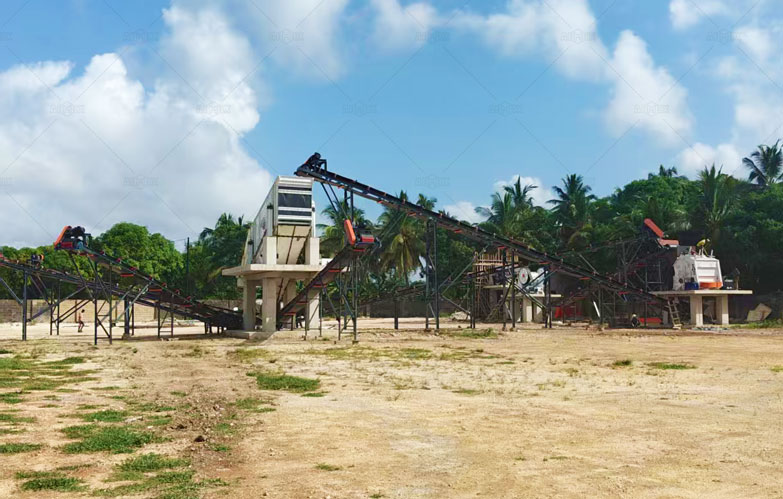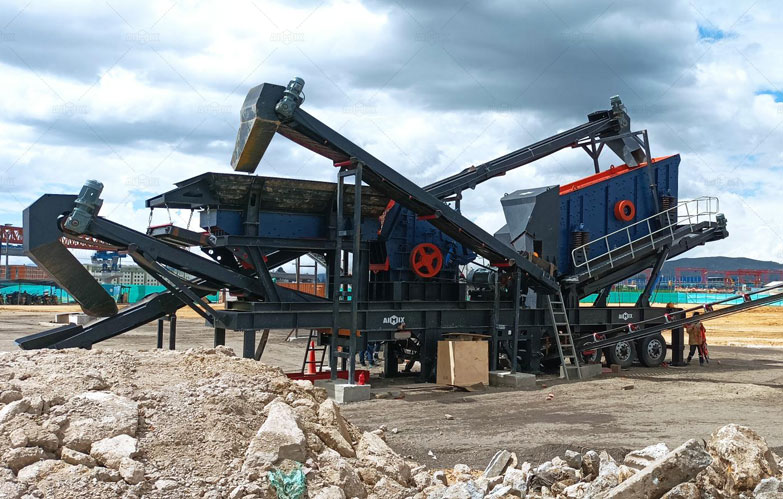What Are the Key Aspects of Localized Aggregate Crushing Plant Delivery?
As the demand for infrastructure and construction materials continues to surge worldwide, localized delivery of aggregate crushing plants has become a decisive factor for many mining and construction companies. The success of a stone crusher plant project is no longer determined solely by the quality of machinery—it now hinges equally on the efficiency, adaptability, and responsiveness of local delivery strategies. From navigating logistical challenges to ensuring after-sales service, localization can make or break your ROI.
Let's explore the key aspects that influence localized delivery and how they can impact the operational value of an aggregate crusher plant(planta trituradora de agregados).

Understanding the Importance of Localized Delivery
Before diving into specific factors, it's essential to understand why localized delivery matters. A mobile stone crusher plant(planta movil de trituracion) is often needed in remote, rugged, or high-demand areas where transportation delays can cause massive downtime losses. By ensuring the plant is delivered, installed, and serviced locally, businesses can reduce lead times, ensure compliance with local regulations, and maintain continuous operations.
In the context of competitive markets like Latin America, Southeast Asia, or Africa, these advantages can significantly influence procurement decisions and long-term partnerships.
Local Regulations and Import Procedures
One of the first hurdles in localized delivery is compliance with customs regulations, safety standards, and import duties. Depending on the country, these may vary significantly. Some regions require specific certifications for electrical or hydraulic systems, while others might limit the import of certain components unless assembled locally.
An experienced manufacturer that understands these local policies can prepare the aggregate crusher plant accordingly, ensuring a smooth customs clearance process. This is particularly important for buyers exploring a stone crusher plant in developing markets, where unexpected import taxes or inspection delays can derail project timelines.
On-Site Assembly and Installation Support
For buyers investing in large-scale stone crusher plants(planta trituradora de piedra en venta), local support for installation is critical. Many crushing plants are shipped in modular form and require skilled technicians to assemble and calibrate components such as jaw crushers, cone crushers, screens, and conveyors.
Manufacturers that offer localized technical support or partner with local contractors are better positioned to reduce the commissioning period. Especially for mobile stone crusher plant buyers working in dynamic quarry environments, quick installation minimizes equipment idle time and accelerates return on investment.
Spare Parts Availability and Maintenance
Another major consideration is the local availability of spare parts and routine maintenance support. No matter how well-built the machine is, wear parts like hammers, blow bars, and belts will eventually need replacement.
When spare parts can be sourced locally or shipped from a nearby regional hub, operational interruptions are minimized. A reliable supplier will maintain inventories of essential wear parts in or near the target market. Some even establish service centers or collaborate with local dealers to offer routine checkups and training for operators.
Adapting to Local Environmental and Material Conditions
Not all aggregate types are the same, and neither are the climate conditions in which plants operate. A mobile stone crusher plant operating in the high-altitude Andes requires different specifications than one deployed in a tropical coastal region.
Localized delivery should include adjustments in machine design, such as:
-
Dust control features for arid zones
-
Reinforced components for high-abrasion stone types
-
Hydraulic systems adapted to low temperatures or high humidity
By tailoring the aggregate crusher plant to the specific working conditions, the equipment runs more efficiently and suffers fewer breakdowns.
Language, Training, and User Familiarity
Localization isn't just mechanical—it's also about communication. Providing manuals, digital interfaces, and customer service in the buyer's local language dramatically improves usability and operator safety.
Training provided in Spanish, Portuguese, or any relevant language helps local teams understand machine operation, troubleshooting, and preventive maintenance. This is particularly relevant for large-scale operations in Latin America where plants are operated by local crews.
Whether you're supplying a stone crusher plant to a client in Peru or launching a new mobile stone crusher plant in West Africa, culturally aware and linguistically appropriate training ensures that technology is transferred smoothly and sustainably.

Conclusion: More Than Delivery—It's Market Readiness
Localized delivery is not a simple logistics task—it's a strategic layer that can differentiate a manufacturer in global competition. From import clearance to after-sales training, adapting the entire lifecycle of the aggregate crusher plant to local realities determines the project's success.
Manufacturers who can offer true local presence—through partnerships, regional offices, or rapid-response service—will win the confidence of customers facing complex project requirements. Whether it's a stationary stone crusher plant or a flexible mobile stone crusher plant, localized delivery ensures not just timely arrival, but long-term reliability and operational excellence.
If you're searching for a high-performance aggregate crusher plant tailored to your region's unique needs, contact us to explore your options and receive local support.
